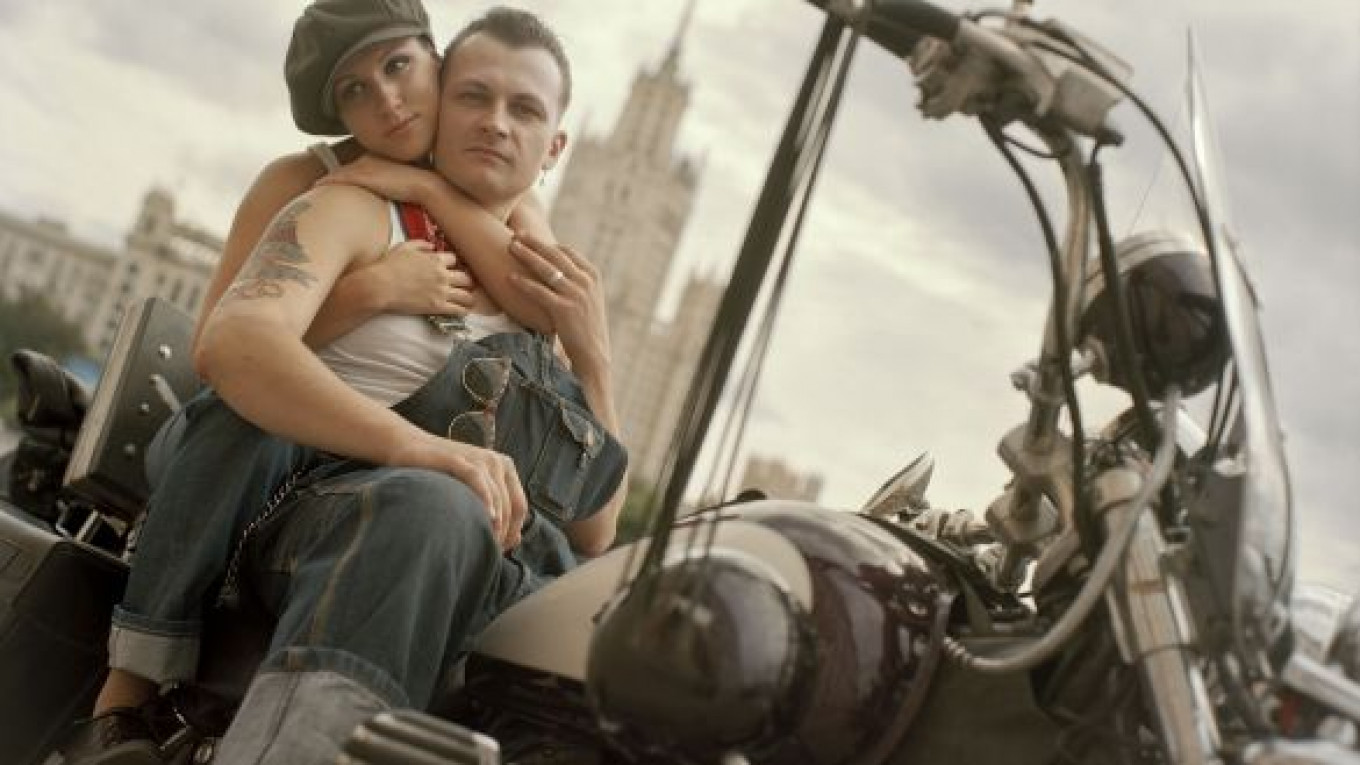At the opening of a photo exhibit, the sound of a double bass being slapped can be clearly heard echoing around the gallery as a local rockabilly group — smart haircut, smart clothes — plays.
Around the walls, visitors to the A3 Gallery can look at portraits of the local Russian rockabilly community, or “ruskabilly,” as they are known and as the exhibit is called. Paul Eng, the award-winning New York photographer whose photos are on show till Sunday, will host a talk Friday about his work.
Eng, a former architectural designer and musician, works as a photographer for a number of top glossy magazines, such as Esquire and Wired. He came across the Russian rockabilly movement by accident when he stumbled into a shop with rockabilly paraphernalia.
Rockabilly, which appeared in the United States in the 1940s and ’50s, developed from rock, blues and hillbilly music. Elvis, The Beatles and Eddie Cochran are just a few of those claimed by rockabillies as their own.
Rockabilly made its way in the shape of Carl Perkins and Eddie Cochran to the Soviet Union in the 1960s, smuggled in on vinyl and then spread around in samizdat versions often recorded and re-recorded over and over again. One of the more unusual ways of spreading music was to record it on X-ray film instead of the impossible-to-get vinyl — music on bones, as it was known.
The stilyagi, the sharp-dressed young Soviet music lovers who came from a jazz background, took to the new music, and some say the new ruskabillies can be traced back to them.
The current Muscovite ruskabilly movement counts about 500 members, all of whom share love and the dress code for the musical genre. Two of the most popular groups in Russia are the Gagarin Brothers and the Ukrainian psychobilly group Madheads. A number of the groups throw in the accordion, too, for a more local sound.
Eng’s photos of the ruskabillies are sympathetic portraits: a father and son in rockabilly clothes or a couple posing in front of a Moscow Ferris wheel.
“The adherents live as a big family, spending a lot of time together, with the usual tension between more and less fanatic members, or people who adhere to different subscenes, such as psychobillies or Teddy Boys,” Eng said. “The local leader here is quite young and dressed from head to toe [in rockabilly style].”
The rockabillies boast of staying in ruskabilly character all the time. Nothing surprising for one who works as a tattoo artist, but there are also the distribution manager for an important chain and Maria, an accountant, who go to work decked out in all their rockabilly glory.
Eng was shortlisted with a honorable mention at the International Photography Awards last year for his series of portraits.
He came to Moscow about six years ago from New York and has been going back and forth between the two ever since.
“Moscow keeps you alert and creative,” he said. “Moscow is stimulating since everything is far from perfect — which keeps you thinking and creating.”
“[It] is similar to New York City in the ’70-’80s — a city of no apologies.”
“Ruskabilly” runs till Sunday at A3 Gallery, located at 39 Starokonyushenny Pereulok. Metro Arbatskaya. Tel. 691-8484, . Eng’s talk takes place Friday at 7 p.m. at the gallery.
A Message from The Moscow Times:
Dear readers,
We are facing unprecedented challenges. Russia's Prosecutor General's Office has designated The Moscow Times as an "undesirable" organization, criminalizing our work and putting our staff at risk of prosecution. This follows our earlier unjust labeling as a "foreign agent."
These actions are direct attempts to silence independent journalism in Russia. The authorities claim our work "discredits the decisions of the Russian leadership." We see things differently: we strive to provide accurate, unbiased reporting on Russia.
We, the journalists of The Moscow Times, refuse to be silenced. But to continue our work, we need your help.
Your support, no matter how small, makes a world of difference. If you can, please support us monthly starting from just $2. It's quick to set up, and every contribution makes a significant impact.
By supporting The Moscow Times, you're defending open, independent journalism in the face of repression. Thank you for standing with us.
Remind me later.






